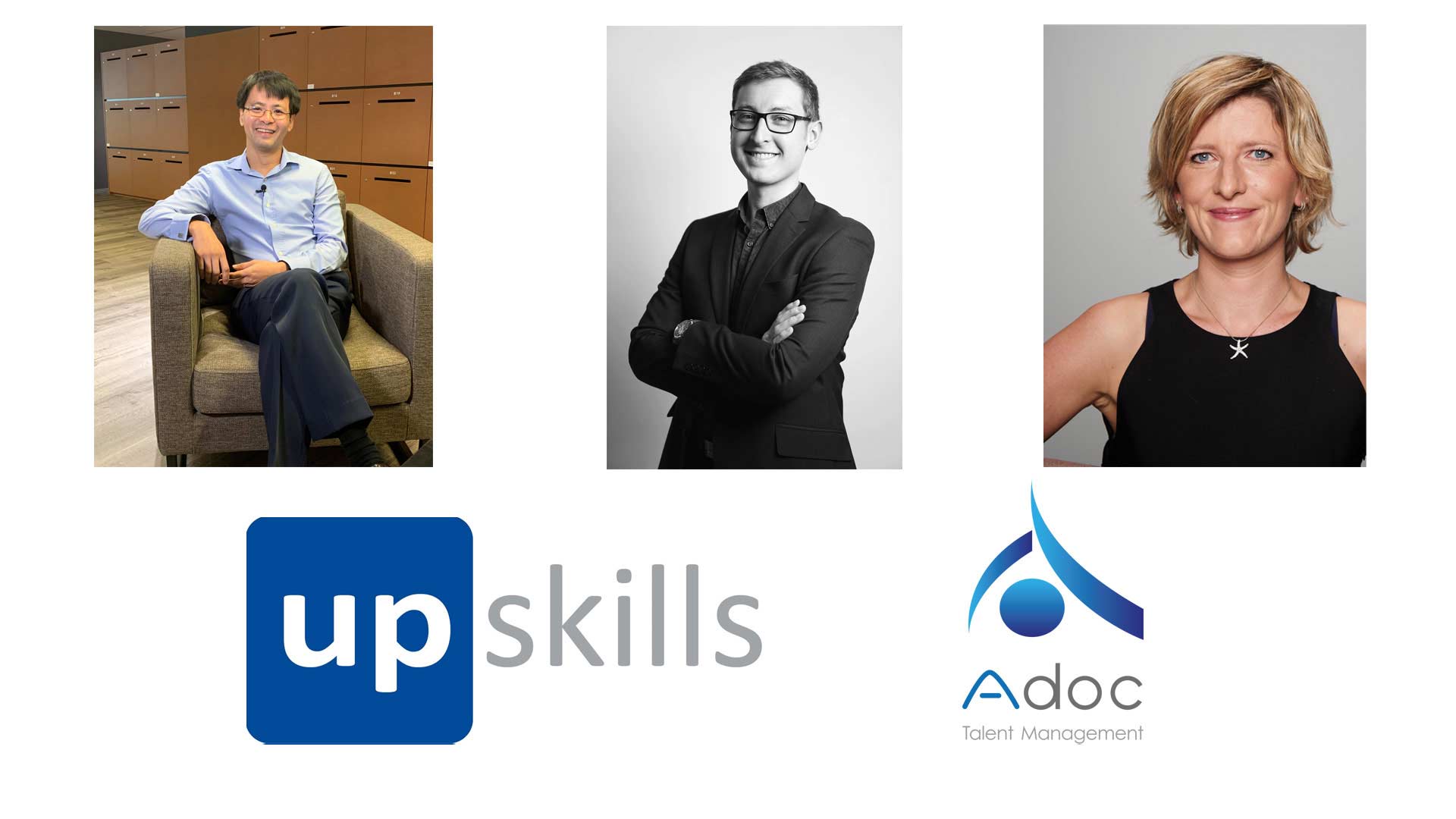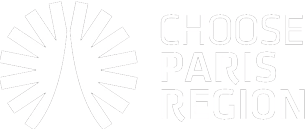
An in-depth, three-way interview with Thong Tran, Upskills CEO, Dr Aurélien Baelde, Technical Director of Upskills R&D France, and Dr Amandine Bugnicourt, CEO of Adoc Talent Management.
Creating a research & development department within a company can always be a testing endeavour. "It always comes with multiple challenges, especially when managers and employees are not used to working with R&D teams: unrealistic expectations regarding the results of R&D, different time frames between the main activity and the research activity, access to the innovation ecosystem, access to a pool of qualified candidates and figuring out how to attract them into an organization with no prior experience in R&D" comments Dr. Amandine Bugnicourt, Adoc Talent Management Cofounder & CEO, who has accompanied various R&D team creations over the last twelve years, including that of Upskills.
These issues can be even more challenging when the R&D branch is set up outside of the company’s home country.
However, Upskills, a Singapore-based consulting firm specializing in market finance and trading room technologies, successfully did just that, launching its Innovation Lab in Paris. Although this was the first office launched by the company in France, it was not the first time the structure had expanded beyond the limits of the city-state. "One of our main partners is the French software publisher Murex, with whom we work very closely in Asia," says Thong Tran, CEO of Upskills. "We now have a team of 80 consultants based in Singapore, as well as regional centers in Thailand, Vietnam, and Kuala Lumpur."
For Dr. Amandine Bugnicourt, "The goal of creating an R&D branch is generally to get rid of an internal constraint (breaking through a scientific or technological barrier, staying ahead of the competition, etc.) or an external constraint (regulatory changes, market demand, catching up with the competition, etc.). Those can push a company to transform such challenges into an opportunity to develop further"— such as finding new ways to improve competitiveness or the development of new products or services.
"As part of our business, over the last three years, we have developed a Machine Learning offer with existing customers to distinguish ourselves from our competitors. "says Thong Tran. "We decided to set up a research and development lab within Upskills to accelerate the company's capacity for innovation, specifically regarding artificial intelligence and machine learning. We have started discussions with Business France and Choose Paris Region, and thanks to their support, our lab has been active for 18 months now. Joining the Cluster Finance Innovation has also been significant. ", he says.
Dr. Aurélien Baelde, who was recruited as a Technical Director to create and direct the Upskills Innovation Lab in France, adds: "The Paris branch's main activity is to carry out R&D in the field of machine learning and artificial intelligence. We do also delve a little into applied mathematics on certain projects, but our core business remains machine learning, obviously with applications, in the banking sector. More specifically, we work a lot in automatic language processing, or natural language processing (NLP), with occasional forays into image processing. In terms of how our activities fit here with those of the Singapore Office, the idea is really to have a complementary approach. Their goal is to use state-of-the-art products and technologies to offer customers high-performance solutions, while our team here in Paris is seeking to go beyond this state of the art. These subjects can be transversal to the client's problems. Our goal is to develop differentiating algorithms and deliver fully exploitable prototypes to the Singapore team."
But, why set up an R&D Lab in Paris? "There are two main reasons for that", begins Thong Tran. "The first one is Amandine (laughs). Indeed, the talent pool in France in general and in the Paris region has been a powerful incentive. We have considered other places to set up this branch and we even had started recruiting in Singapore. But after just a few months, the Singapore team was made up of only French nationals! So, it was natural to start in France, and especially Paris, given the talent pool in machine learning. What is more, the various mechanisms to foster innovation and R&D in the country and the region are an attractive factor for setting up there".
Even if creating a Research & Development center was generally well-received by the rest of the team, some hesitation could still be noted in the early stages of the project. "On the other hand, surprisingly, with the consultants, especially the younger ones, the relationship was very good from the beginning. They saw us as kind of mentors. I also notice that things are going very well with the senior employees who have since joined the team. So yes, some alignments had to be made initially, but everyone sees the advantage of R&D now. It has been easier than expected." says Dr. Baelde. He adds: "all the new members of the Paris team spent several weeks in Singapore to meet the teams, understand the core business and meet customers". For Thong Tran, the Paris office's geographical distance was an important success factor, protecting its “functional distance”: "It was easier with it being far away and in different time zones than being on the same site. It made the problem easier to manage by giving the R&D team certain independence."
For Dr. Amandine Bugnicourt, management must relentlessly push the R&D pole creation project and promote it internally. "It must accept being pushed around and not expect a ROI in the very short term, and it must work to adapt the entire structure to R&D. This implies making sure that the scientific and research approach, the jargon, the deadlines, are well understood, but also accepting that certain project management methods are not perfectly adapted to R&D and its intrinsic uncertainty. On the other hand, it also requires that the research team has a good understanding of the business challenges, the business activities and the value proposition. The company's R&D and corporate history teams should not be working in isolation, but together. For such projects to be successful, it takes Ph.D. profiles that are at the cutting edge of the latest research topics of course. But then they should also have a strong appetite for entrepreneurship or intrapreneurship while being autonomous and committed... a bit like Aurélien was in the case of Upskills. Like setting up a business abroad, the creation of an R&D hub requires, in a way, building bridges. So you have to find candidates with a hybrid profile that understand R&D and business ». She adds. "This is also true both between the cultures of the countries in question and between experienced and novice profiles in terms of research activity. »
Upskills was assisted by Adoc Talent Management for its recruitments and by other Parisian innovation and entrepreneurship stakeholders during the implementation. It was therefore able to launch its Innovation Lab in early 2019. Eighteen months later, the Lab had 3 full-time employees, 7 interns, and projects aplenty. The team continues to carry out internal projects and also collaborates with the academic community. In particular, it is currently working on a CIFRE thesis with LIP6 (the computer science lab of Sorbonne University). While Dr. Aurélien Baelde would like the branch to develop a commercial activity, and Thong Tran is aiming for a team of 15 to 20 researchers within a 3-year time frame, the Lab assures that the caution that initially guided it has borne fruit. "We recruited a small number of people who roll up their sleeves and believe in it at the start and look at how things were going. And as a result, the profiles, the people, were very much valued. And the current went well, between them, at the lab in Paris, but also with Singapore. That has been a major factor of success."
This is also true in Dr. Amandine Bugnicourt's experience: "In a way, you have to demonstrate the company is ready to welcome and take advantage of this R&D team and to show what it can bring to the company. Among the SME clients we have assisted, this often goes through an initial Proof-of-Concept stage with one to three people dedicated to R&D, before adding to the team. It also gives more time to gain better insight into the strategic orientations to take, with input from the first researchers and clients. The alignment between R&D strategy and the company's overall strategy is important and requires a good understanding of both. For example, we have assisted companies that organized activities between consultants and researchers to help them better interact and better understand their complementarities."
To sum up some of the success factors for setting up an R&D and/or international team discussed here: find assistance, take the time needed, creating networks both internally and externally, recruit the right talent and properly incorporate them as part of the new organization!

